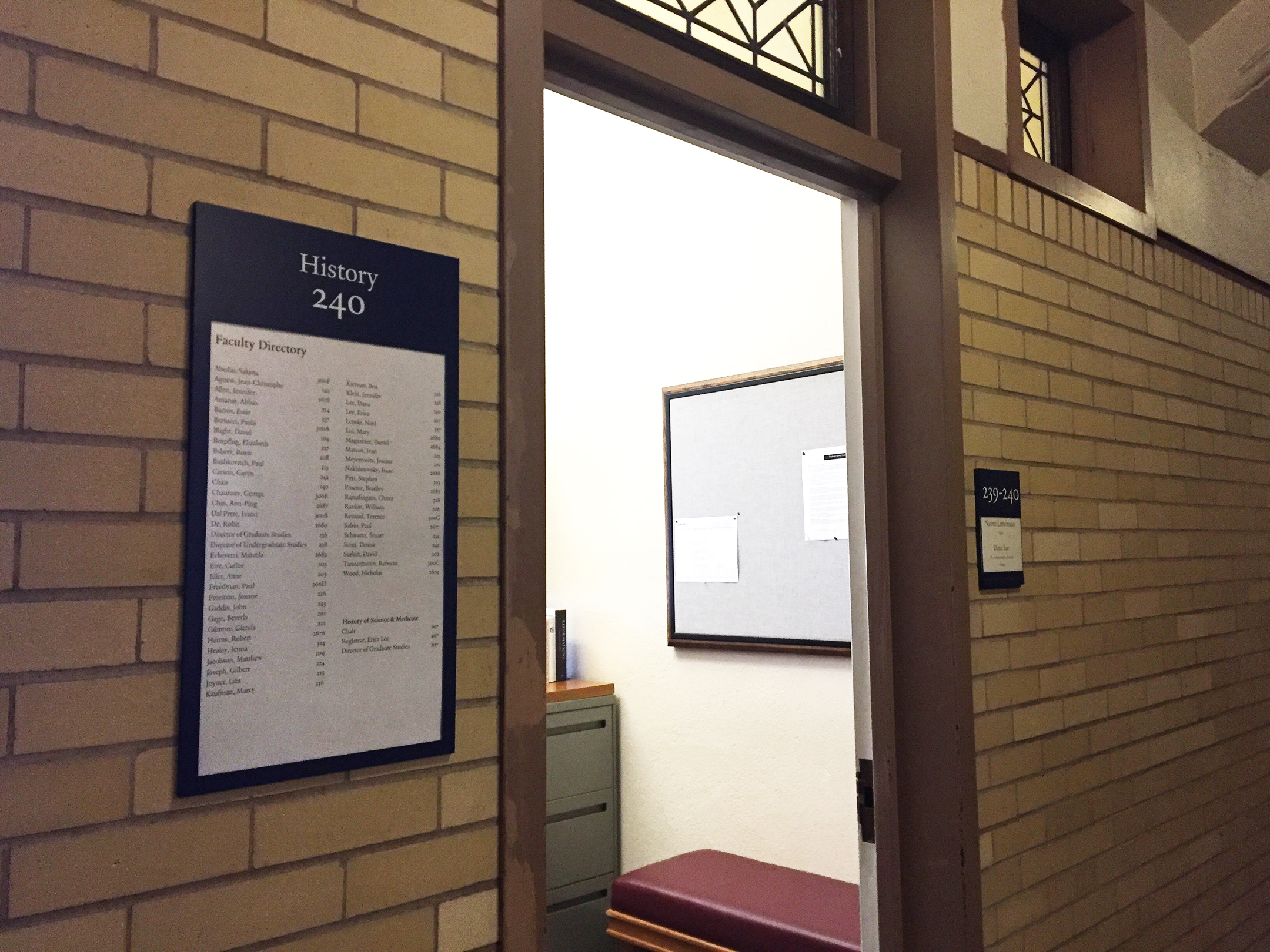
History is the most popular major among members of the class of 2019 who have already declared, signaling a potential return for what was once Yale’s most popular program of study.
Until the early 2000s, the history major was the largest at Yale before its popularity began to wane, which History Director of Undergraduate Studies Alan Mikhail said was consistent with a national trend. History is the third-most popular major in the classes of 2017 and 2018, trailing behind economics and political science. Students who are not majoring in science, technology, engineering and math fields are required to declare their major no later than the start of their junior year, while students in STEM fields are expected to do so during their sophomore year.
“In enrollments, majors and faculty, Yale History has historically been one of the largest departments at Yale,” Mikhail said. “It is one of the most renowned history departments anywhere. Our faculty publish books that change the profession and sometimes even the world.”
The recent revival of interest in history stands in contrast to a trend among undergraduates nationwide away from the humanities and toward STEM fields. According to the American Academy of Arts and Sciences, the number of bachelor’s degrees that American universities conferred in the humanities has been declining steadily every year, with one report noting an 8.7 percent drop from 2012 to 2014.
Mikhail attributed history’s increased ranking to the department’s efforts in restructuring the major to allow students to focus on a specific topic. The department also revamped its course offerings, hired new faculty and sponsored campuswide events to engage the entire Yale community in matters of historical inquiry and thought, he added.
“I think our current historical moment is also drawing students to history,” Mikhail said. “Both economic and political modeling failed to predict and then address the financial crisis of a few years ago and to forecast the outcome of the election of 2016. The tools of historians are better suited to the work of understanding the world.”
Patrick Binder ’19, a recently declared history major, said he chose the major because the department offers classes in a wide variety of historical periods and topics.
Binder said his father, a history major himself, cautioned him that a history degree may not have the best job prospects — a common concern students have about majoring in the humanities. However, Binder said the faculty in Yale’s history and other humanities departments provided him with the resources to overcome this concern and helped him realize the opportunities granted through studies in the humanities.
Faculty and students interviewed said the value of the humanities should not be measured simply by their capacity to open up job opportunities. Kathryn Slanski, the director of undergraduate studies in the Directed Studies program, discussed the importance of an education in the humanities, particularly history, in solving problems creatively.
“Humanities majors are always asking questions that can’t ever be answered in black and white responses,” Slanski said. “That kind of inquiry is so central to studying any of the humanities.”
According to Slanski, the analytical and complex reasoning skills nurtured through studies in the humanities allow students to be active consumers and producers of information, teaching them skills that can be applied across a wide variety of disciplines.
In that vein, Slanski referenced the recent 70th anniversary celebration of the Directed Studies program. At the anniversary event, program alumni in fields ranging from journalism to law to photography reflected on what they gained from their studies in the humanities.
In 2014–15, 16 percent of Yale undergraduates majored in economics, 13 percent in political science, 9 percent in history and 7 percent in psychology.







